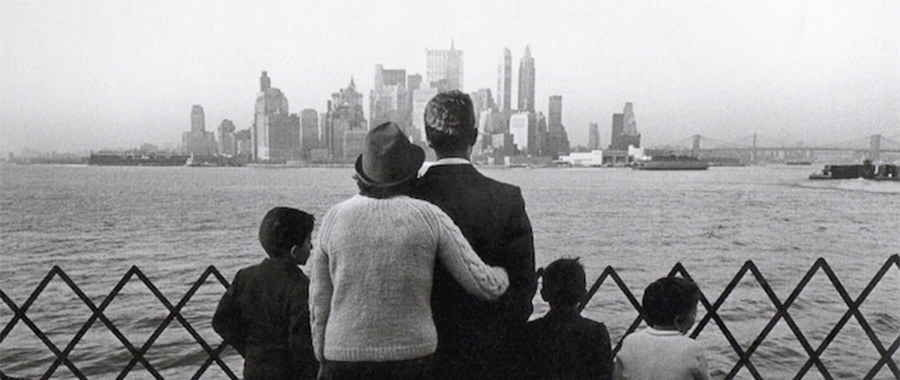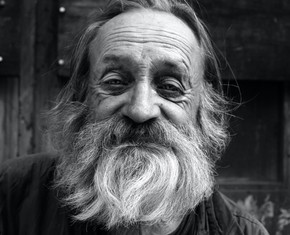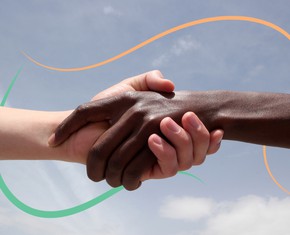The views expressed in our content reflect individual perspectives and do not represent the authoritative views of the Baha'i Faith.
Immigrants to America like me learn to love their new country – and I not only did that, I brought a new love to my country.
In addition to my dreams of an education and the warm, loving contact I had with the Baha’i community in the U.S., I had a personal interest in energizing my entire life: I was considering marrying Tahereh Missaghi, whom I had known in Shiraz when I lived in Iran.
Tahereh was an extraordinary young woman. Her plan: to finish medical school and move to Africa to help spread the Baha’i principle of the oneness of humanity:
… in the contingent world, the human species hath undergone progressive physical changes and, by a slow process, hath scaled the ladder of civilization, realizing in itself the wonders, excellencies and gifts of humanity in their most glorious form, until it gained the capacity to express the splendours of spiritual perfections and divine ideals and became capable of hearkening to the call of God. Then at last the call of the Kingdom was raised, the spiritual virtues and perfections were revealed, the Sun of Reality dawned, and the teachings of the Most Great Peace, of the oneness of the world of humanity and of the universality of men, were promoted. We hope that the effulgence of these rays shall become more and more intense, and the ideal virtues more resplendent, so that the goal of this universal human process will be attained and the love of God will appear in the utmost grace and beauty and bedazzle all hearts. – Abdu’l-Baha, Selections from the Writings of Abdu’l-Baha, pp. 285-286.
Tahereh’s devotion to the Faith was total, which caused me to work on increasing the level of my own Baha’i activity. She had a pure, kind-hearted and compassionate spirit. In our correspondence, I let her know that I was not willing to live in another country to serve the Faith there. My plans were to further my education and settle down. I could not have been much of an enticing prospect, as I lived in a cheap hotel in midtown in a single room covered with posters of Marx, Freud, Einstein and Abdu’l-Baha.
I should have gone to Iran to marry Tahereh, but my fear of not being able to return prevented me. Instead, Tahereh came to the U.S. in 1968. There was a shortage of doctors in the country, so the sponsoring hospital provided her with a green card, a stipend and an apartment, and I was fortunate to share in this benefit.
We were married in a simple, joyous Baha’i ceremony in my friend Majid’s apartment. Majid ran a garage and had a car, which meant to us poor Persian students that he was rich. The companionship I found in our marriage banished the loneliness I had lived with since stepping off the Queen Mary, and Tahereh’s straightforwardness and sincerity cleared the confusion that often plagued my mind about the state of my life and the prospects for my future.
Being a poor foreign student, I had no savings with which to pay for a wedding. I borrowed $200 and bought a $10 fake diamond ring. We invited the members of the Spiritual Assembly and friends, but could only spend $40 on the whole event. The meal consisted of turkey and cookies. We ran out of everything. For our honeymoon Tahereh and I drove to Washington DC, but ran out of money; on our way back, we spent the night in the rented car.
Her father sent us the gift of a rug from Iran. I dreamed of this big beautiful rug coming from my home country which would give distinction to our small studio, though I feared that magnificent rug wouldn’t fit in the tiny space. I asked Majid to bring his station wagon because a Persian rug could not fit into a small vehicle. We drove out to the airport after I got a notice from Iran Air that the rug had arrived. I walked up to the pick-up window and the attendant went to get our big beautiful carpet, but when she returned she placed a small prayer rug in front of me that easily fit on the shallow counter.
Despite our relative poverty, I had peace of mind and stability in my life thanks to my marriage to Tahereh. But while my private world was now fulfilled and tranquil, the society all around me was in a state of great change and agitation. This was the late ’60s, with a new generation challenging many of the social norms of the past.
At the university, I listened to a guest speaker rail against the government. I was astonished that this was allowed to happen; I was from a country that did not permit any political opposition, much less in public. Left-leaning Iranian students pressured me into joining one of their political groups but, being a Baha’i, I wanted to avoid partisan politics – in keeping with the tenets of the Baha’i teachings:
Religion should not concern itself with political questions … Religion is concerned with things of the spirit, politics with things of the world. Religion has to work with the world of thought, whilst the field of politics lies with the world of external conditions. – Abdu’l-Baha, Paris Talks, pp. 132-133.
Universities were exciting places in those days. The Vietnam conflict had become a full-blown war after years of gradual military build-up. The public mood about Vietnam soured as Americans saw the horrors of war in the jungle in living color on their televisions every night. The new generation was increasingly vocal about its antipathy to a war many young people had come to see as immoral. Most famously, students occupied several buildings of Columbia University to protest the school’s connection to the Department of Defense. After weeks of sit-ins, protests and rising tensions, the police were called in. Hundreds of students were arrested.
In the spring of 1968, we witnessed the assassinations of the leading political light of the antiwar movement, Robert Kennedy; and the leader of the civil rights movement, Dr. Martin Luther King, Jr. The universities, and the country, began to take a decided turn, with millions advocating for racial justice and peace. As a Baha’i, I shared that view, as expressed by Abdu’l-Baha:
I desire distinction for you. The Baha’is must be distinguished from others of humanity. But this distinction must not depend upon wealth – that they should become more affluent than other people. I do not desire for you financial distinction. It is not an ordinary distinction I desire; not scientific, commercial, industrial distinction. For you I desire spiritual distinction – that is, you must become eminent and distinguished in morals. In the love of God you must become distinguished from all else. You must become distinguished for loving humanity, for unity and accord, for love and justice. In brief, you must become distinguished in all the virtues of the human world – for faithfulness and sincerity, for justice and fidelity, for firmness and steadfastness, for philanthropic deeds and service to the human world, for love toward every human being, for unity and accord with all people, for removing prejudices and promoting international peace. – Abdu’l-Baha, The Promulgation of Universal Peace, p. 190.
















Comments
Sign in or create an account
Continue with Googleor